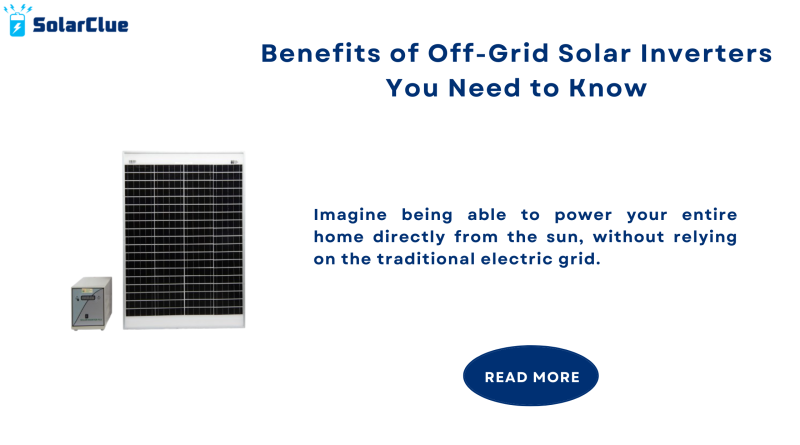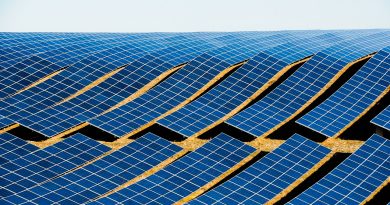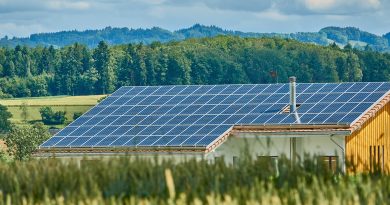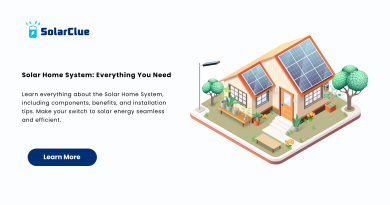Benefits of Off-Grid Solar Inverters You Need to Know
Imagine being able to power your entire home directly from the sun, without relying on the traditional electric grid. That’s the beauty of off-grid solar systems, and at the heart of these setups is the off-grid solar inverter. Maybe you’re tired of paying rising utility bills, or you live in a remote area without access to the grid. Either way, understanding off-grid inverters can open up a world of energy independence.
Table of Contents
What is an Off-Grid Solar Inverter?
An off-grid solar inverter is a major component in any stand-alone photovoltaic (PV) system. Its primary function is to convert the direct current (DC) electricity generated by your solar panels into alternating current (AC) electricity, which is the type of power that most household appliances and electronics require.
Off-grid inverters operate independently; whereas, grid-tied inverters operate with the utility grid. This makes them ideal for remote locations or for those seeking complete energy self-sufficiency.
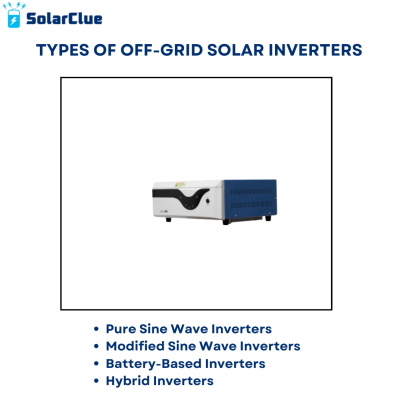
Types of Off-Grid Solar Inverters:
1.Pure Sine Wave Inverters: These inverters produce a smooth, clean AC power output that closely resembles the electricity from the grid, making them suitable for sensitive electronics and appliances.
2.Modified Sine Wave Inverters: While more affordable, these inverters generate a stepped or modified sine wave output, which may not be as efficient or compatible with certain devices.
3.Battery-Based Inverters: These inverters are designed to work with a battery bank, storing excess solar energy for use when the sun isn’t shining.
4.Hybrid Inverters: Combining the capabilities of both grid-tied and off-grid inverters, hybrid models offer versatility and can switch between different power sources as needed.
How Off-Grid Solar Inverters Work?
Off-grid solar inverters are typically part of a larger PV system that includes solar panels, batteries, and other components. Here’s a simplified overview of how they operate:
1.The solar panels convert sunlight into DC electricity.
2.This DC power is then sent to a charge controller, which effectively regulates the flow of electricity to the batteries.
3.The off-grid inverter draws the stored DC power from the batteries and converts it into AC electricity.
4.The AC power is then distributed throughout your home or building, thereby powering your lights, appliances, and other electrical loads..
Benefits of Off-Grid Solar Inverters:
1.Energy Independence: With an off-grid solar system, you’ll be free from reliance on the utility grid, which can be particularly advantageous in remote areas or during power outages.
2.Cost Savings: While the initial investment in an off-grid system may be higher, you’ll save significantly on electricity bills over time, especially as energy prices continue to rise.
3.Environmental Friendliness: By harnessing the power of the sun, an abundant and renewable energy source, you’ll be reducing your carbon footprint and contributing to a more sustainable future.
4.Versatility: Off-grid inverters can be tailored to meet your specific energy needs, whether you’re powering a small cabin or a larger residential or commercial property.
5.Reliability: With proper maintenance and a well-designed system, off-grid solar inverters can provide reliable power for decades, ensuring a consistent and uninterrupted energy supply.
6.Increased Property Value: Properties equipped with off-grid solar systems are often more attractive to environmentally conscious buyers, potentially increasing their resale value.
Conclusion
As the world continues to embrace sustainable energy solutions, off-grid solar inverters are becoming an increasingly popular choice for those seeking energy independence and a greener lifestyle. With their ability to convert solar power into usable electricity, these inverters offer numerous benefits, from cost savings and environmental friendliness to reliability and versatility. Whether living off the grid or simply aiming to reduce reliance on traditional power sources, an off-grid solar inverter could serve as the key to unlocking a more self-sufficient and eco-friendly future.
Visit SolarClue® to see the best Off-Grid Solar Inverters. SolarClue® actively sells solar energy products at discounts of up to 50% on its online marketplace.
Frequently Asked questions:
1.Can we use a solar inverter off-grid?
We can use for remote locations not connected to the main utility network; nonetheless, they still require a site near a power outlet for installation.
2.Can off-grid solar run AC?
Yes, you can run an air conditioner with solar power.
3.Is off-grid solar worth it?
Both have pros and cons. You have to decide which one is suitable for you. If frequent power cuts occur in your location, you should opt for an off-grid solar power plant. If there are power cuts for less than 30 minutes a day, then opting for an On-Grid solar power plant would be advisable.
4.What size inverter for off-grid solar?
For off-grid solar, the size of the inverter depends on the total wattage of appliances and devices you plan to power simultaneously. Therefore, it’s crucial to calculate your power needs accurately before choosing an inverter..
5.Which one is better, on-grid or off-grid?
On-grid systems are typically more cost-effective and convenient for areas with reliable grid access; however, off-grid systems offer independence but require more planning and investment in storage solutions.

